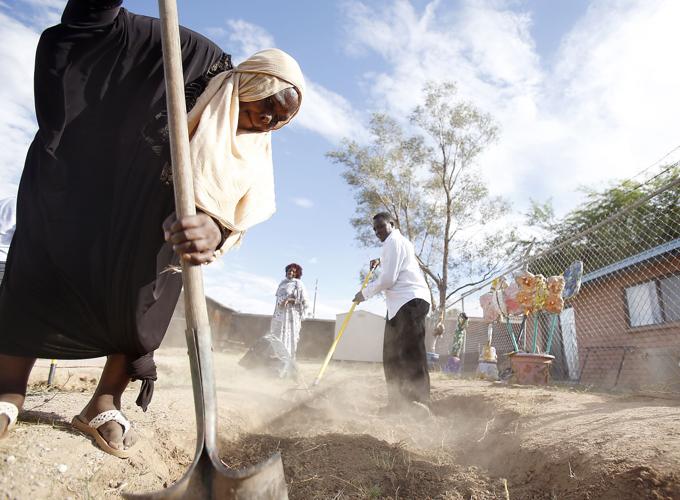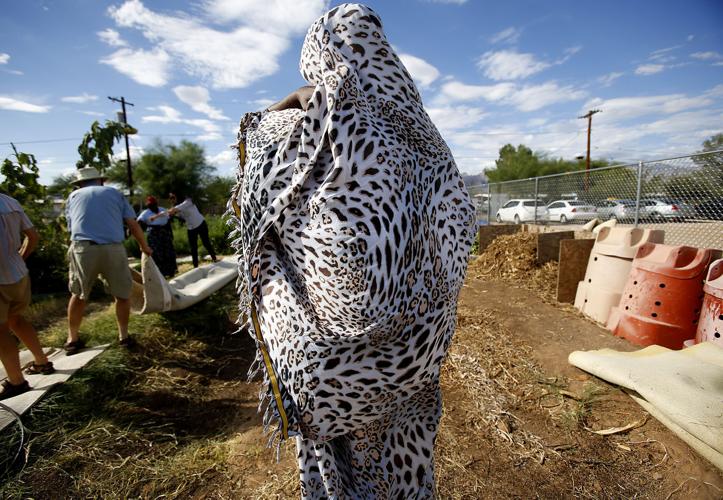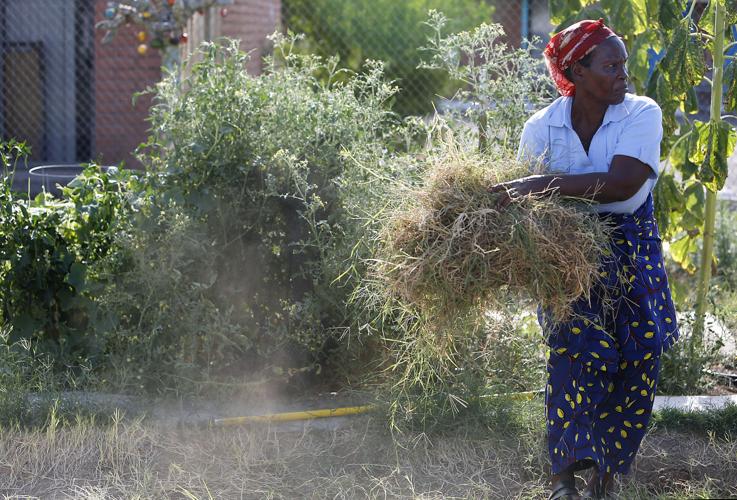For most people, gardening is just a hobby.
For Fatma Bodour, it’s a reminder of her family back in Sudan.
“I really miss it,” Bodour said. “One day I’ll go back and visit, but it’s not possible right now.”
Bodour is a refugee who has settled in Tucson.
Like millions of other refugees, she fled from her home in the face of war and persecution.
On a recent day, Bodour was joined by several other refugees in the garden of St. Demetrios Greek Othodox Church, 1145 E. Fort Lowell Road.
Some are from Sudan and others are from the Democratic Republic of Congo and Somalia. They till the soil and remove weeds as part of the New Roots program by the International Rescue Committee, the local branch of a refugee resettlement organization.
The agricultural program strives to reconnect refugees with their farming roots and foster community through gardening. Participants are given a small plot where they can grow their own fruits and vegetables.
“Being here, I remember my farm and everything I used to grow,” Bodour said. “Especially my father, who taught me how to farm.”
Bodour has farmed since age 10.
This afternoon in the church garden marks the first time she is able to garden again since her arrival in Tucson nearly two months ago.
After a two-year hiatus, the New Roots program returned in May thanks to grant funding.
The program has had successes. One graduate of the program started his own business, making a living selling produce at a farmers market. Others learned agricultural skills that helped them find a job with local farmers.
Beyond gardening, the program also provides an opportunity for refugees to connect.
“Building community is a big part of it,” said Katrina Martinez, the program’s nutrition coordinator. “It’s a chance for everyone to get to know each other and bond through the experience.”
On this day, Bodour helps Azza Kowa, another refugee from Sudan who is a newcomer to gardening.
The New Roots program also is used for nutrition education.
Many refugees struggle to navigate unfamiliar American grocery stores and to find a healthy variety in their diet, Martinez said.
“Finding healthy produce is a common issue. Many, just stick to two or three vegetables that they recognize, and many admit the food isn’t as fresh or flavorful as the food they have back at home,” Martinez said.
As a result, gaining access to healthy foods is a big motivating factor for participants in the program.
“Everything I grow, I’ll use for my family,” Kowa said. “It’s good, healthy food grown from my own hands.”
Refugees aren’t the only ones excited about the return of the program. For many community volunteers, the program provides an opportunity to lend a helping hand and embrace other cultures.
“I think it’s terrific,” said Jennifer Hall, a site coordinator and master gardener who helps oversee the property. “We’re aware that these people have had to endure a lot in their life, and we’re here to show that they deserve better.”






